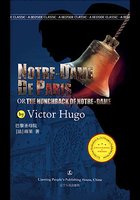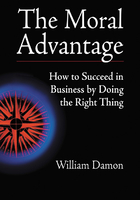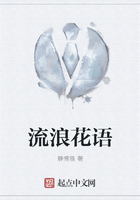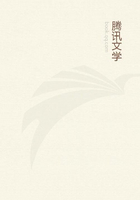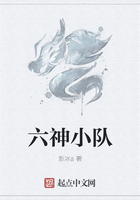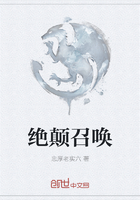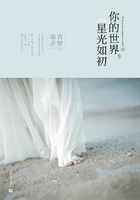Grimaud thereupon presented himself with his smooth exterior at the donjon of Vincennes. Now Monsieur de Chavigny piqued himself on his infallible penetration; for that which almost proved that he was the son of Richelieu was his everlasting pretension; he examined attentively the countenance of the applicant for place and fancied that the contracted eyebrows, thin lips, hooked nose, and prominent cheek-bones of Grimaud were favorable signs. He addressed about twelve words to him; Grimaud answered in four.
"Here's a promising fellow and it is I who have found out his merits," said Monsieur de Chavigny. "Go," he added, "and make yourself agreeable to Monsieur la Ramee, and tell him that you suit me in all respects."
Grimaud had every quality that could attract a man on duty who wishes to have a deputy. So, after a thousand questions which met with only a word in reply, La Ramee, fascinated by this sobriety in speech, rubbed his hands and engaged Grimaud.
"My orders?" asked Grimaud.
"They are these; never to leave the prisoner alone; to keep away from him every pointed or cutting instrument, and to prevent his conversing any length of time with the keepers."
"Those are all?" asked Grimaud.
"All now," replied La Ramee.
"Good," answered Grimaud; and he went right to the prisoner.
The duke was in the act of combing his beard, which he had allowed to grow, as well as his hair, in order to reproach Mazarin with his wretched appearance and condition. But having some days previously seen from the top of the donjon Madame de Montbazon pass in her carriage, and still cherishing an affection for that beautiful woman, he did not wish to be to her what he wished to be to Mazarin, and in the hope of seeing her again, had asked for a leaden comb, which was allowed him. The comb was to be a leaden one, because his beard, like that of most fair people, was rather red; he therefore dyed it thus whilst combing it.
As Grimaud entered he saw this comb on the tea-table; he took it up, and as he took it he made a low bow.
The duke looked at this strange figure with surprise. The figure put the comb in its pocket.
"Ho! hey! what's that?" cried the duke. "Who is this creature?"
Grimaud did not answer, but bowed a second time.
"Art thou dumb?" cried the duke.
Grimaud made a sign that he was not.
"What art thou, then? Answer! I command thee!" said the duke.
"A keeper," replied Grimaud.
"A keeper!" reiterated the duke; "there was nothing wanting in my collection, except this gallows-bird. Halloo! La Ramee! some one!"
La Ramee ran in haste to obey the call.
"Who is this wretch who takes my comb and puts it in his pocket?" asked the duke.
"One of your guards, my prince; a man of talent and merit, whom you will like, as I and Monsieur de Chavigny do, I am sure."
"Why does he take my comb?"
"Why do you take my lord's comb?" asked La Ramee.
Grimaud drew the comb from his pocket and passing his fingers over the largest teeth, pronounced this one word, "Pointed."
"True," said La Ramee.
"What does the animal say?" asked the duke.
"That the king has forbidden your lordship to have any pointed instrument."
"Are you mad, La Ramee? You yourself gave me this comb."
"I was very wrong, my lord, for in giving it to you I acted in opposition to my orders."
The duke looked furiously at Grimaud.
"I perceive that this creature will be my particular aversion," he muttered.
Grimaud, nevertheless, was resolved for certain reasons not at once to come to a full rupture with the prisoner; he wanted to inspire, not a sudden repugnance, but a good, sound, steady hatred; he retired, therefore, and gave place to four guards, who, having breakfasted, could attend on the prisoner.
A fresh practical joke now occurred to the duke. He had asked for crawfish for his breakfast on the following morning; he intended to pass the day in making a small gallows and hang one of the finest of these fish in the middle of his room—the red color evidently conveying an allusion to the cardinal—so that he might have the pleasure of hanging Mazarin in effigy without being accused of having hung anything more significant than a crawfish.
The day was employed in preparations for the execution. Every one grows childish in prison, but the character of Monsieur de Beaufort was particularly disposed to become so. In the course of his morning's walk he collected two or three small branches from a tree and found a small piece of broken glass, a discovery that quite delighted him. When he came home he formed his handkerchief into a loop.
Nothing of all this escaped Grimaud, but La Ramee looked on with the curiosity of a father who thinks that he may perhaps get a cheap idea concerning a new toy for his children. The guards looked on it with indifference. When everything was ready, the gallows hung in the middle of the room, the loop made, and when the duke had cast a glance upon the plate of crawfish, in order to select the finest specimen among them, he looked around for his piece of glass; it had disappeared.
"Who has taken my piece of glass?" asked the duke, frowning. Grimaud made a sign to denote that he had done so.
"What! thou again! Why didst thou take it?"
"Yes—why?" asked La Ramee.
Grimaud, who held the piece of glass in his hand, said: "Sharp."
"True, my lord!" exclaimed La Ramee. "Ah! deuce take it! we have a precious fellow here!"
"Monsieur Grimaud!" said the duke, "for your sake I beg of you, never come within the reach of my fist!"
"Hush! hush!" cried La Ramee, "give me your gibbet, my lord. I will shape it out for you with my knife."
And he took the gibbet and shaped it out as neatly as possible.
"That's it," said the duke, "now make me a little hole in the floor whilst I go and fetch the culprit."
La Ramee knelt down and made a hole in the floor; meanwhile the duke hung the crawfish up by a thread. Then he placed the gibbet in the middle of the room, bursting with laughter.
La Ramee laughed also and the guards laughed in chorus; Grimaud, however, did not even smile. He approached La Ramee and showing him the crawfish hung up by the thread:
"Cardinal," he said.
"Hung by order of his Highness the Duc de Beaufort!" cried the prisoner, laughing violently, "and by Master Jacques Chrysostom La Ramee, the king's commissioner."
La Ramee uttered a cry of horror and rushed toward the gibbet, which he broke at once and threw the pieces out of the window. He was going to throw the crawfish out also, when Grimaud snatched it from his hands.
"Good to eat!" he said, and put it in his pocket.
This scene so enchanted the duke that at the moment he forgave Grimaud for his part in it; but on reflection he hated him more and more, being convinced he had some evil motive for his conduct.
But the story of the crab made a great noise through the interior of the donjon and even outside. Monsieur de Chavigny, who at heart detested the cardinal, took pains to tell the story to two or three friends, who put it into immediate circulation.
The prisoner happened to remark among the guards one man with a very good countenance; and he favored this man the more as Grimaud became the more and more odious to him. One morning he took this man on one side and had succeeded in speaking to him, when Grimaud entered and seeing what was going on approached the duke respectfully, but took the guard by the arm.
"Go away," he said.
The guard obeyed.
"You are insupportable!" cried the duke; "I shall beat you."
Grimaud bowed.
"I will break every bone in your body!" cried the duke.
Grimaud bowed, but stepped back.
"Mr. Spy," cried the duke, more and more enraged, "I will strangle you with my own hands."
And he extended his hands toward Grimaud, who merely thrust the guard out and shut the door behind him. At the same time he felt the duke's arms on his shoulders like two iron claws; but instead either of calling out or defending himself, he placed his forefinger on his lips and said in a low tone:
"Hush!" smiling as he uttered the word.
A gesture, a smile and a word from Grimaud, all at once, were so unusual that his highness stopped short, astounded.
Grimaud took advantage of that instant to draw from his vest a charming little note with an aristocratic seal, and presented it to the duke without a word.
The duke, more and more bewildered, let Grimaud loose and took the note.
"From Madame de Montbazon?" he cried.
Grimaud nodded assent.
The duke tore open the note, passed his hands over his eyes, for he was dazzled and confused, and read:
"My Dear Duke,—You may entirely confide in the brave lad who will give you this note; he has consented to enter the service of your keeper and to shut himself up at Vincennes with you, in order to prepare and assist your escape, which we are contriving. The moment of your deliverance is at hand; have patience and courage and remember that in spite of time and absence all your friends continue to cherish for you the sentiments they have so long professed and truly entertained.
"Yours wholly and most affectionately
"Marie de Montbazon.
"P.S.—I sign my full name, for I should be vain if I could suppose that after five years of absence you would remember my initials."
The poor duke became perfectly giddy. What for five years he had been wanting—a faithful servant, a friend, a helping hand—seemed to have fallen from Heaven just when he expected it the least.
"Oh, dearest Marie! she thinks of me, then, after five years of separation! Heavens! there is constancy!" Then turning to Grimaud, he said:
"And thou, my brave fellow, thou consentest thus to aid me?"
Grimaud signified his assent.
"And you have come here with that purpose?"
Grimaud repeated the sign.
"And I was ready to strangle you!" cried the duke.
Grimaud smiled.
"Wait, then," said the duke, fumbling in his pocket. "Wait," he continued, renewing his fruitless search; "it shall not be said that such devotion to a grandson of Henry IV. went without recompense."
The duke's endeavors evinced the best intention in the world, but one of the precautions taken at Vincennes was that of allowing prisoners to keep no money. Whereupon Grimaud, observing the duke's disappointment, drew from his pocket a purse filled with gold and handed it to him.
"Here is what you are looking for," he said.
The duke opened the purse and wanted to empty it into Grimaud's hands, but Grimaud shook his head.
"Thank you, monseigneur," he said, drawing back; "I am paid."
The duke went from one surprise to another. He held out his hand. Grimaud drew near and kissed it respectfully. The grand manner of Athos had left its mark on Grimaud.
"What shall we do? and when? and how proceed?"
"It is now eleven," answered Grimaud. "Let my lord at two o'clock ask leave to make up a game at tennis with La Ramee and let him send two or three balls over the ramparts."
"And then?"
"Your highness will approach the walls and call out to a man who works in the moat to send them back again."
"I understand," said the duke.
Grimaud made a sign that he was going away.
"Ah!" cried the duke, "will you not accept any money from me?"
"I wish my lord would make me one promise."
"What! speak!"
"'Tis this: when we escape together, that I shall go everywhere and be always first; for if my lord should be overtaken and caught, there's every chance of his being brought back to prison, whereas if I am caught the least that can befall me is to be—hung."
"True, on my honor as a gentleman it shall be as thou dost suggest."
"Now," resumed Grimaud, "I've only one thing more to ask—that your highness will continue to detest me."
"I'll try," said the duke.
At this moment La Ramee, after the interview we have described with the cardinal, entered the room. The duke had thrown himself, as he was wont to do in moments of dullness and vexation, on his bed. La Ramee cast an inquiring look around him and observing the same signs of antipathy between the prisoner and his guardian he smiled in token of his inward satisfaction. Then turning to Grimaud:
"Very good, my friend, very good. You have been spoken of in a promising quarter and you will soon, I hope, have news that will be agreeable to you."
Grimaud saluted in his politest manner and withdrew, as was his custom on the entrance of his superior.
"Well, my lord," said La Ramee, with his rude laugh, "you still set yourself against this poor fellow?"
"So! 'tis you, La Ramee; in faith, 'tis time you came back again. I threw myself on the bed and turned my nose to the wall, that I mightn't break my promise and strangle Grimaud."
"I doubt, however," said La Ramee, in sprightly allusion to the silence of his subordinate, "if he has said anything disagreeable to your highness."
"Pardieu! you are right—a mute from the East! I swear it was time for you to come back, La Ramee, and I was eager to see you again."
"Monseigneur is too good," said La Ramee, flattered by the compliment.
"Yes," continued the duke, "really, I feel bored today beyond the power of description."
"Then let us have a match in the tennis court," exclaimed La Ramee.
"If you wish it."
"I am at your service, my lord."
"I protest, my dear La Ramee," said the duke, "that you are a charming fellow and that I would stay forever at Vincennes to have the pleasure of your society."
"My lord," replied La Ramee, "I think if it depended on the cardinal your wishes would be fulfilled."
"What do you mean? Have you seen him lately?"
"He sent for me to-day."
"Really! to speak to you about me?"
"Of what else do you imagine he would speak to me? Really, my lord, you are his nightmare."
The duke smiled with bitterness.
"Ah, La Ramee! if you would but accept my offers! I would make your fortune."
"How? you would no sooner have left prison than your goods would be confiscated."
"I shall no sooner be out of prison than I shall be master of Paris."
"Pshaw! pshaw! I cannot hear such things said as that; this is a fine conversation with an officer of the king! I see, my lord, I shall be obliged to fetch a second Grimaud!"
"Very well, let us say no more about it. So you and the cardinal have been talking about me? La Ramee, some day when he sends for you, you must let me put on your clothes; I will go in your stead; I will strangle him, and upon my honor, if that is made a condition I will return to prison."
"Monseigneur, I see well that I must call Grimaud."
"Well, I am wrong. And what did the cuistre [pettifogger] say about me?"
"I admit the word, monseigneur, because it rhymes with ministre [minister]. What did he say to me? He told me to watch you."
"And why so? why watch me?" asked the duke uneasily.
"Because an astrologer had predicted that you would escape."
"Ah! an astrologer predicted that?" said the duke, starting in spite of himself.
"Oh, mon Dieu! yes! those imbeciles of magicians can only imagine things to torment honest people."
"And what did you reply to his most illustrious eminence?"
"That if the astrologer in question made almanacs I would advise him not to buy one."
"Why not?"
"Because before you could escape you would have to be turned into a bird."
"Unfortunately, that is true. Let us go and have a game at tennis, La Ramee."
"My lord—I beg your highness's pardon—but I must beg for half an hour's leave of absence."
"Why?"
"Because Monseigneur Mazarin is a prouder man than his highness, though not of such high birth: he forgot to ask me to breakfast."
"Well, shall I send for some breakfast here?"
"No, my lord; I must tell you that the confectioner who lived opposite the castle—Daddy Marteau, as they called him——"
"Well?"
"Well, he sold his business a week ago to a confectioner from Paris, an invalid, ordered country air for his health."
"Well, what have I to do with that?"
"Why, good Lord! this man, your highness, when he saw me stop before his shop, where he has a display of things which would make your mouth water, my lord, asked me to get him the custom of the prisoners in the donjon. 'I bought,' said he, 'the business of my predecessor on the strength of his assurance that he supplied the castle; whereas, on my honor, Monsieur de Chavigny, though I've been here a week, has not ordered so much as a tartlet.' 'But,' I then replied, 'probably Monsieur de Chavigny is afraid your pastry is not good.' 'My pastry not good! Well, Monsieur La Ramee, you shall judge of it yourself and at once.' 'I cannot,' I replied; 'it is absolutely necessary for me to return to the chateau.' 'Very well,' said he, 'go and attend to your affairs, since you seem to be in a hurry, but come back in half an hour.' 'In half an hour?' 'Yes, have you breakfasted?' 'Faith, no.' 'Well, here is a pate that will be ready for you, with a bottle of old Burgundy.' So, you see, my lord, since I am hungry, I would, with your highness's leave——" And La Ramee bent low.
"Go, then, animal," said the duke; "but remember, I only allow you half an hour."
"May I promise your custom to the successor of Father Marteau, my lord?"
"Yes, if he does not put mushrooms in his pies; thou knowest that mushrooms from the wood of Vincennes are fatal to my family."
La Ramee went out, but in five minutes one of the officers of the guard entered in compliance with the strict orders of the cardinal that the prisoner should never be left alone a moment.
But during these five minutes the duke had had time to read again the note from Madame de Montbazon, which proved to the prisoner that his friends were concerting plans for his deliverance, but in what way he knew not.
But his confidence in Grimaud, whose petty persecutions he now perceived were only a blind, increased, and he conceived the highest opinion of his intellect and resolved to trust entirely to his guidance.


